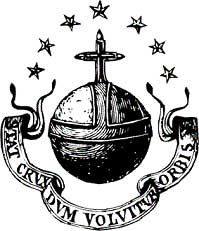Today’s Feast is especially meaningful because of the Church’s current excruciation. We are, at this moment, sharing in our Lord’s suffering in an intense, collective, and universal way.
Looking forward, it seems to me that we can even now see some of the elements of our resurrection triumph which the sharing in this cross makes possible.
1. A deep love for the Church’s perennial teaching on the Christian call to holiness through chastity, in every state of life. St. Paul called this obedience of faith, the offering of our bodies, “rational worship.” To people who are subject to concupiscence, often very badly formed, and swimming in a culture virtually devoid of good example, the Church’s teachings seem much more like a series of “thou shalt nots” than a joyfully exuberant path of life. A scandal of this proportion tends to simplify matters into the easy choice of Deuteronomy: life, or death. Choose life for you and your children. Choose life.
2. A renewal of the servant-leader approach to episcopal service. In every profession there comes a point of seniority after which it becomes very hard to be fired: tenure in academia and partnership in law, for example. Redress of complaints made by juniors to seniors after this point is limited. For me, and perhaps for others, the apparent assumption of this privileged status by our bishops in their 2002 agreement constitutes one of the major betrayals leading to the current outcry. Combined with this is a perception that at times some bishops may have used the power of the charter as a weapon against priests who have not committed crimes of this nature, but who are troublesome in some other way. In so many ways, this particular time is a purification for bishops as a group, for their relationships with their priests and seminarians, as well as for their care of their people. This is a moment when all of these things could be rethought and moved forward on an excellent footing.
3. The historical possibility of clearing an enormous worldwide organization of sexual abuse of minors and subordinates. Sexual abuse is not a Catholic problem. It is a human problem. For various reasons, including such practical reasons as deep pockets and such spiritual reasons as hatred of the faith, the Catholic Church is nearly alone in being called out in public regarding abuse. As an example, the Washington Post once ran an article about a school teacher who had sexually abused students. This article was not, as would have been the case for a priest, a major headline above the fold on the front page. It was instead in the local section, several pages back, with a one-inch photo. Every organization that works with young people has this problem of sexual predation, not to mention the many people who abuse the young on a personal level. The Church’s time in the spotlight is not fair, in a sense. But it is much more important to note that the terror and pain of victims are entirely unfair, and our crises give us an opportunity to make a safe place for all people. This is a world full of abuse and human trafficking and sorrow inflicted by the strong upon the vulnerable. If that one safe place–an entirely safe place–happened to be uniquely the Catholic Church, that would go a long way towards fulfilling the prayer of Jesus, that the Father’s will be done on earth as in heaven, in the place where such goodness should in fact happen, in the Catholic Church.
4. The removal of a problematic group from Church leadership. Ascending on high, Christ gave gifts to the human race. These gifts are people—prophets, teachers, etc. If these gifts, these gifted gifts from the Giver of all good gifts, are to have scope for their exercise and fruition, this would be easier if they were not excluded for the wrong reasons. Probably everyone who has worked in the Church knows about exclusion for the wrong reasons, such as faithful and healthy seminarians who were dismissed for alleged “rigidity.” Over and above these sometimes facile condemnations, there is also a problem of falling outside the network of preferment. When, as now, one of the most powerful current networks of preferment exists because of sin, acts to support sin, and self-perpetuates by introducing others to sin, then this situation acts contrary to the gifts that Christ, ascending, gave. If the Church is a ship, this group grounds us at shoals. If the Church is a net, they tangle our exercise. If the Church is a body, we are thwarted in health. Instead of committing itself to strong and healthy forward motion, the Church is weakened and depressed–introspective. We have tangled nets. They must be loosened from those whose dispositions and ambition have made them capable of stranglehold.
5. A time of grace for repentance. If in the past there have been clergymen and even bishops who have live a twisted double life including predation and other crimes, they may have died without ever coming face to face with their sins, and sincerely repenting. This is a horrifying thought. Once someone is conceived, born, and baptized, their eternal destiny is of infinite importance. This is true even if their power was once such that no one dared to confront them until they were gravely incapacitated–like the incapacity that seems to have started the current redress. “In his riches, man lacks wisdom. He is like the beasts that are destroyed.” The eternal weight of a human soul, potentially glorious forever, potentially agonized forever, whose destiny is determined not by thought and choice but by almost unconsidered yet wildly destructive malice–this is an unendurable thought. Accountability, among its many other benefits, gives the guilty an opportunity to think seriously about important matters, to make amends, and to plead for pardon.

